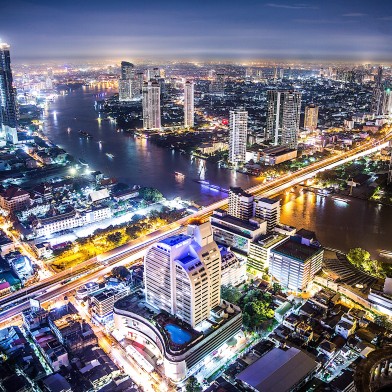After weeks of wrangling and negotiation, Thailand has a new Prime Minister.
Real estate tycoon Srettha Thavisin of the Pheu Thai Party was endorsed as PM by the King earlier this week and took over the position.
Thailand's general election was held in May, but neither Srettha nor his party won the most votes or seats. That victory went to the reformist pro-democracy Move Forward Party and the young leader Pita Limjaroenrat.
So how did Srettha end up in the role?
Thai politics is never anything less than complicated, and the recent electoral success of the Move Forward Party looked to herald the beginning of a possibly less riven Parliament, freed from the influence of the Thai military, and keen to get started on sorting the myriad problems facing the kingdom
But despite an extended period of negotiation and horse-trading between parties, Pita was blocked in his bid to become prime minister, with parliament denying his second nomination and a suspension from Parliament while the Constitutional Court considers complaints against him.
Election winners Move Forward had developed a coalition of eight parties, and swept to victory in May with a resounding vote against the military backed administration of ex-General Prayut Chan-O-Cha.
Move Forward's coalition currently holds 312 seats in the 500-seat House of Representatives, but despite that hefty majority, the selection of a PM depends on the vote of the Senate, a 250-seat unelected body stacked with pro-military senators.
Pita won 324 votes in the first selection ballot, some way from the 375 needed for a majority in the combined House and Senate.
The Move Forward Party's pledge to amend the country's lese-majeste laws became a bottleneck, resulting in only 13 senators supporting Pita.
He tried again to win the required support, but again fell short – prompting the Move Forward leader to announce he would step aside in favour of a candidate named by his coalition partner, the Pheu Thai Party – backed by former Prime Minister Thaksin Shinawatra.
The Pheu Thai Party, the second-largest party in the victorious coalition, started talks with political parties sympathetic to the previous administration in an effort to cross the 375-vote finish line.
The party formed a coalition with 11 other parties, including the Palang Pracharath Party and the United Thai Nation Party. The addition of these last two parties drew controversy - both are backed by the military and are associated with former generals who led the coup in Thailand in 2014.
At the time, Srettha said it was "necessary" to join with these parties, to break the political deadlock from the Move Forward Party.
Thailand's newest leader comes to the role new to the world of politics, but with an extensive business background which his party faithful say will be important in the country's post-Covid economic recovery.
- Asia Media Centre


